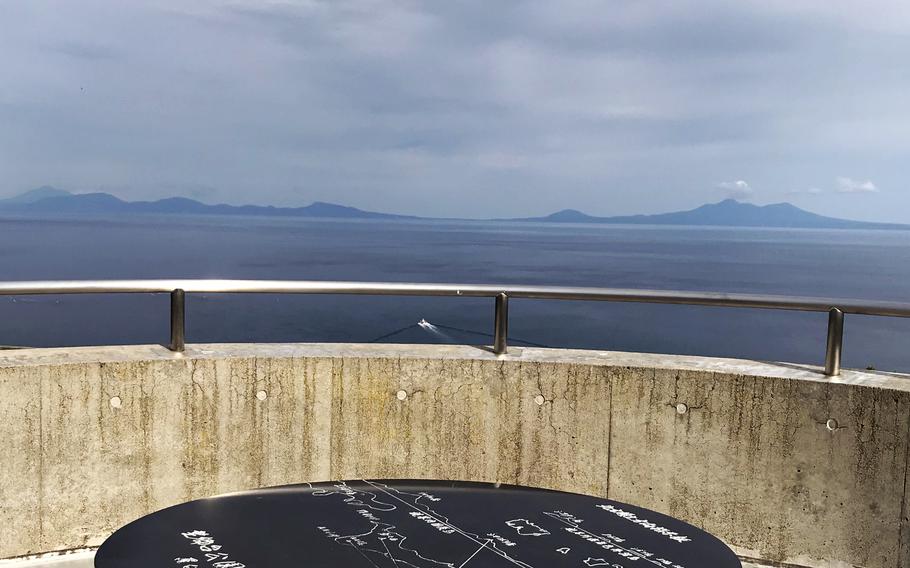
Russia-controlled Kunashiri Island is seen in the distance from Hokkaido, Japan, Oct. 10, 2018. (Seth Robson/Stars and Stripes)
TOKYO — Russians “don’t give a damn” about the feelings of Japanese concerning islands occupied by Russia since the end of World War II, a former Russian president said Tuesday.
Dmitry Medvedev, now deputy chairman of Russia’s Security Council, ruled out returning four islands — Etorofu, Kunashiri, Shikotan and the Habomai islet group — that Japan wants back as a condition for signing a peace treaty with its neighbor.
Medvedev’s remarks on X, formerly Twitter, follow comments by Russian President Vladimir Putin at a Jan. 9 town hall, where he said he would visit the Kuril Islands, which include the four captured from Japan.
After WWII, Russian troops occupied the islands and expelled 17,000 Japanese residents. The dispute over the islands, which Japan calls its Northern Territories, remains a source of tension and the reason the nations have yet to sign a peace treaty 76 years after the war.
Russia suspended negotiations on the territorial dispute and peace treaty after Tokyo imposed economic sanctions on Moscow following its invasion of Ukraine in February 2022.
Medvedev said his post was a response to comments by Japanese Prime Minister Fumio Kishida indicating support for a peace treaty.
The islands are not “disputed territories but part of Russia,” Medvedev said.
“And those of the samurai who feel especially sad can end their life in a traditional Japanese way, by committing seppuku,” he said. “If they dare, of course. Surely, it feels a lot better French-kissing Americans, having totally forgotten Hiroshima and Nagasaki.”
James Brown, an international affairs expert at Temple University’s Japan campus, said he doesn’t expect any substantial response from Japan.
Medvedev’s job title might sound important, but it is a role without major responsibilities, Brown wrote in an email Thursday. The Japanese government would be wise to ignore his comments, he said.
“The role was specifically created to give Medvedev some sort of title after he was replaced as prime minister,” Brown added. “Now lacking a serious position within the Russian political, he is desperate to attract attention to himself.”